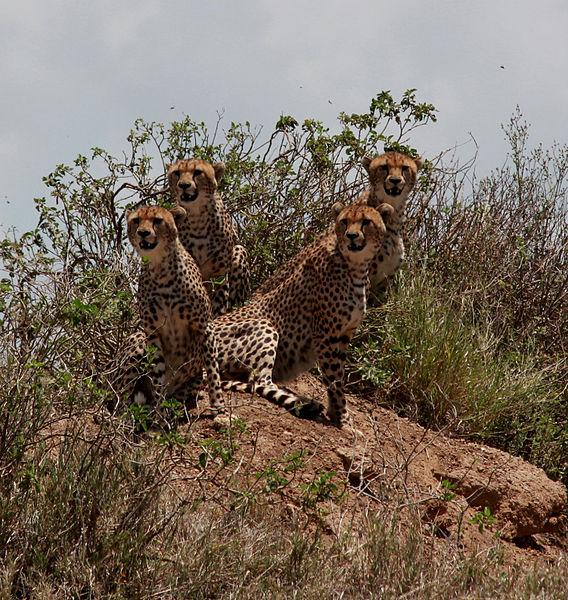Cheetahs in race of their lives — to save their species
Four cheetahs at the Serengeti National Park in Tanzania. (Photo by Filip Lachowski via Wikimedia Commons.)
Step into Patricia Tricorache’s home in the Florida Keys, and it’s clear where her loyalties lie.
Framed pictures of cheetahs hang on the wall. Cheetah spots freckle the pillows and curtains.
Even her phone has a ringtone of a cheetah purring.
“They’re one of the most amazing animals in the whole world. They’re like poetry when you see one,” Tricorache said.
Tricorache works for the Cheetah Conservation Fund, and she’s seen plenty of the animals on her visits to Namibia — where the non-profit is based.
“There’s nothing that beats watching a cheetah run,” she said. “It’s like a flash. They’re incredibly focused. And their ears fall back, and they’re all business.”
Cheetahs can reach speeds of 70 miles an hour when they run. But these days, that run has become a race — against extinction.
In the early 1900s, there were 100,000 cheetahs in the world. Only 10,000 remain today, and they’ve got a small gene pool.
Their habitat’s shrinking. Wild cheetahs could disappear within 20 years.
“To think that your kids will never see a cheetah run in the wild… And they’re gonna ask us, ‘Why didn’t you do anything?’ And I don’t want to have to answer that question,” Tricorache said.
Protecting a top predator means protecting an entire ecosystem.
And that’s Tricorache’s big goal – to create a wild home for her cats. And to do it before extinction wins the race.
Our coverage reaches millions each week, but only a small fraction of listeners contribute to sustain our program. We still need 224 more people to donate $100 or $10/monthly to unlock our $67,000 match. Will you help us get there today?
